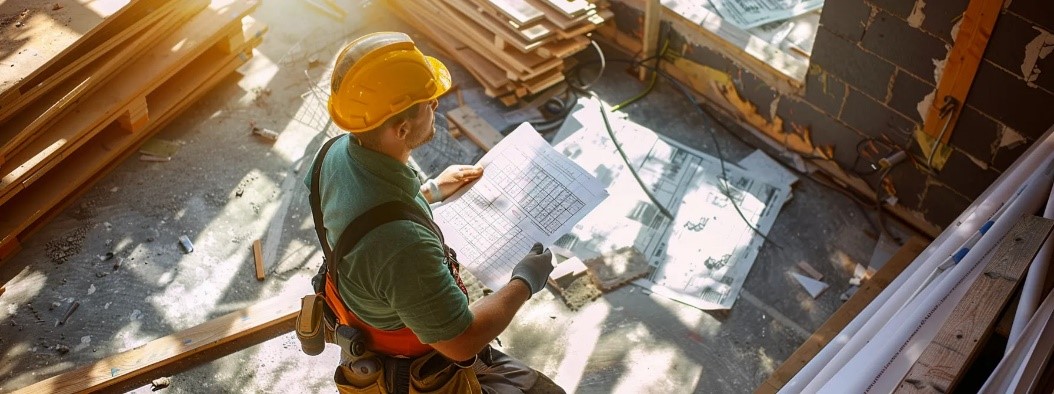Embarking on the journey to purchase and transform a fixer-upper into a profitable sale can be as rewarding as challenging. Aspiring investors need a well-honed strategy to identify properties with potential, manage renovation budgets, and execute upgrades that matter most to buyers. Aligning with real estate agents versed in the nuances of such projects is a crucial step toward success. Keep reading to uncover time-tested strategies that can boost the value of a fixer-upper and help turn a modest investment into an impressive return.
Partnering with a Knowledgeable Real Estate Agent: A Key to Finding the Right Fixer-Upper
A skilled real estate professional’s support is invaluable in pursuing a profitable fixer-upper. Their expertise facilitates the differentiation between a wise investment and a money pit, guiding investors toward properties with the potential for a lucrative transformation. Knowledge of market trends and neighborhood dynamics enables these professionals to pinpoint homes poised for value enhancement through strategic renovation.
Effective negotiation is another critical component of a successful property flip, often orchestrated by the real estate agent. Their negotiation acumen secures purchase prices, leaving ample room for renovation expenses and profit margins. Without this financial leverage, the economics of flipping could collapse under the weight of unexpected costs and market fluctuations.
A comprehensive network of contacts an experienced agent cultivated can be a gateway to off-market deals. These properties, typically less visible to the public, often present unique opportunities for astute investors to capitalize on before they hit the open market. This hidden inventory can harbor some of the most promising fixer-uppers, often requiring swift and decisive action.
Diligent research and sound advice from a seasoned agent minimize the risks of purchasing a fixer-upper. They provide vital insights into the realistic costs of renovations and the potential resale value post-rehabilitation. With their guidance, investors equip themselves with the information necessary to make informed decisions and avoid precarious investments.
Strategic Renovation: Balancing Costs and Enhancing Appeal
Investors eyeing fixer-uppers as profitable ventures must prioritize renovations that bolster property value while adhering to a strict budget.
Strategic improvements that address functionality and aesthetics can significantly enhance a property’s marketability. An example is the kitchen; modernizing appliances and refreshing cabinetry can deliver a substantial return on investment.
Attention to structural and systemic updates often yields long-term benefits, safeguarding the property’s integrity. When planning your renovation, consider upgrading the HVAC with a reliable option like Siegman Forced Air Systems to improve energy efficiency and overall home appeal without breaking the bank. For more information, visit https://siegmanhvac.com/.
An attractive exterior can entice potential buyers before they step inside, making curb appeal enhancements such as landscaping or an updated front door a wise investment.
Maximizing ROI: Proven Strategies to Increase Property Value Before Selling
Investors often focus on cosmetic enhancements that resonate strongly with potential buyers, such as modern kitchens and bathrooms, to boost a property’s marketability. These key areas attract considerable attention during showings and can significantly influence buyer decisions, directly impacting the return on investment.
Creating additional living space within a fixer-upper can dramatically raise property value. Whether by finishing a basement, adding a deck, or converting an attic into a bedroom, these transformations turn underutilized areas into highly desirable features that command higher prices on the resale market.
Attention to a property’s curb appeal frequently results in a notable increase in perceived value. Simple yet effective changes, such as a well-manicured lawn or a fresh coat of exterior paint, set an inviting tone that can sway potential buyers before they enter.
An investor’s ability to anticipate and incorporate energy-efficient upgrades is a significant selling point in modern markets. Features like double-glazed windows, efficient heating systems, and upgraded insulation reduce future ownership costs and cater to the growing demand for sustainable living options among today’s homebuyers.
Overall, successfully flipping a fixer-upper requires a strategic approach that balances cost-effective renovations with targeted enhancements to boost property value. By aligning with knowledgeable real estate agents and making thoughtful upgrades, investors can maximize their return on investment and turn a modest property into a profitable venture.






0 Comments